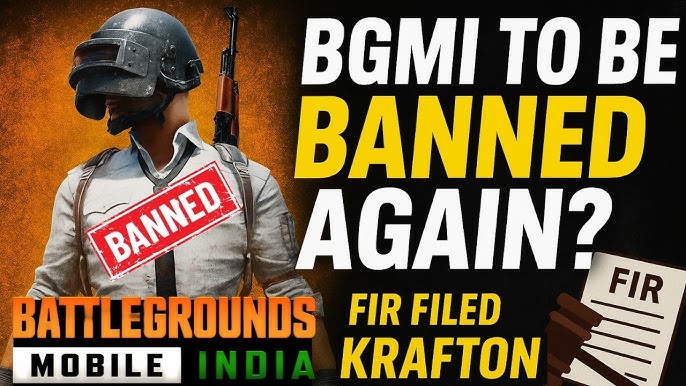Recent allegations against Krafton India have sparked widespread concern throughout the BGMI gaming community. Players across the country are now anxiously discussing the possibility of another gaming ban.

The controversy began when a local resident filed an FIR at Akluj Police Station in Maharashtra. According to the complaint, Krafton allegedly sold user data on Telegram for approximately ₹2,000 per subscriber. Additionally, the accusations include data breaches, contract violations, and unauthorized sharing of personal information.
In response to these serious claims, the Bombay High Court has scheduled a hearing for April 15, 2025. The court aims to investigate these allegations thoroughly and determine their validity.
Why Players Shouldn't Panic Just Yet
Despite the alarming headlines, several compelling factors suggest that a BGMI ban remains highly unlikely. First of all, legal experts point to jurisdictional limitations that would prevent an immediate nationwide ban.
Furthermore, many community members have raised logical arguments against the probability of these accusations being true. Let's examine why the game will likely continue operating throughout India.
The Hacker Theory Gains Traction
Many players believe the alleged data breach might be the work of malicious third parties rather than Krafton itself. This perspective makes sense because established gaming companies typically implement robust security measures. Therefore, a hacker exploiting vulnerabilities seems more plausible than deliberate corporate misconduct.
Business Logic Contradicts Allegations
Another Reddit user, TheUnhingedMannequin, highlighted the business inconsistencies in these allegations. "There's a slim chance that this could be false, as the FIR was filed by some local resident, and ain't no huge company selling private data on Telegram," they wrote.
The user further explained, "Not after getting banned twice. Plus they are very well aware that the government has their sight on telegram sellers already. So they won't take such a major risk."
Indeed, Krafton experienced the consequences of privacy concerns since the first PUBG ban in 2020. Consequently, the company would be particularly cautious about data privacy issues that could threaten their business in India again.
Legal Process Makes Immediate Ban Unlikely
Perhaps the most compelling reason against an immediate ban comes from the legal process itself. As Reddit user Personal_Guide_9218 pointed out, "It will take too long brother cause the case is filled in Bombay High court after 1st date 2nd date of the case will come in a year or maybe two."
Even more importantly, the Bombay High Court can only enforce restrictions within Maharashtra's borders. For a nationwide ban, "he have to go to apex court of India Supreme Court of India this process will take years so relax," the user added.
This legal reality provides significant reassurance to concerned players throughout the country.
Krafton's Official Response
Krafton hasn't remained silent amid these allegations. In an exclusive statement to Yonhap News Agency, the company firmly rejected the accusations: "We have reviewed the case thoroughly and confirmed that the allegations of data leakage and monetization are groundless."
This direct denial suggests the company is ready to defend itself vigorously during the upcoming court proceedings.
The Bigger Picture: Privacy Concerns in India
Regardless of this specific case's outcome, the situation highlights ongoing digital privacy concerns in India. Previously, the government banned 119 apps from Chinese companies, including PUBG Mobile, due to data security issues.
However, BGMI was subsequently released as a specialized Indian version with enhanced privacy protections. This history explains why many players feel anxious about these new allegations, despite evidence suggesting a ban remains unlikely.
What Happens Next?
While the April 15 hearing will provide more clarity, the legal and practical realities suggest BGMI players can continue enjoying the game. The combination of jurisdictional limitations, lengthy legal processes, and Krafton's categorical denial all point toward the game's continued availability.
Nevertheless, this case serves as an important reminder about the significance of data privacy in today's digital gaming landscape. The Indian government maintains strict standards for protecting user information, and gaming companies must ensure complete compliance to maintain their position in this valuable market.










Comments